Have To Must Can

Modal Verbs Quiz English Esl Worksheets For Distance Learning And Physical Classrooms

Should Must Have To

Modals Can Could May Might Should Have To Must

Modal Verbs Rules Using The Verbs Must Have To May Might
1

Should Must English Esl Worksheets For Distance Learning And Physical Classrooms
MODALS + V3 Practice Test Ought to.

Have to must can. I must play football. ♦ I must buy flowers for my mother. My sister must wash the dishes.
He must be a policeman. Can Can't Exercises 5-6-7 Mustn't vs Don't Have to Exercises 1 / 2 / 3 8-9-10 Must vs Have to / Has to Exercises 1 / 2 / 3 11. The modals must, must not and need not have the same form regardless the subject.
We can also use must to express strong advice. Do you know the difference between 'must', 'have to' and 'should'?. Can he play the trumpet?.
MUST, MUSTN’T, HAVE TO, DON’T HAVE TO Complete these sentences with must, mustn’t or the correct or the correct form of have to. Aralarında kullanım açısından ufak farklılıklar vardır. If you say, We must talk to her before she leaves, you mean that you think this is very important, and you need to do it.
Must/mustn’t, have to/don’t. Must and have (got) to are used in the present to say that something is necessary or should be done. Cümlede Must kullanıldığı zaman cümleyi söyleyen kişinin kendi otoritesini ortaya koyduğu ve kendi duygularını ve kişisel görüşünü dile getirdiği anlaşılır.
(NOT He must comes with us.;. The obligation comes from an external source. Use must + infinitive without to.
I must wash the car tomorrow. Is unnecessary, use need not, not must not.(The negation of must means not allowed to.). Must is known as a modal verb in the English language while have to is a verb.
You must eat less candy. Must and have to are both used to talk about obligations:. Must, have got to :.
Have to and must are used to indicate a rule or an obligation. They have almost the same meaning. Hope you find it useful.
Rules and Obligations Have to, must, don't have to, must not. MUST or HAVE TO?. "Have to" is used to show that a person is obliged to do something, usually by an outside force, have to can also be used to give your opinion:.
There must be a lot of traffic. Must, have, can Appunto d'inglese per le medie sull'utilizzo di must, have to e can. Ez már nem lesz olyan egyszerű, mert a MUST tagadó alakja, nem a MUST ige tagadó formája lesz.
Must – to show that something is very possible She must be very intelligent. While “must” and “have to” can often be used interchangeably, there are marked differences between the two. Mustn't vs Needn't vs Can't Similar Exercises:.
Must/ have to/ can Must e have to sono utilizzati similmente per esprimere un dovere. I must go to the doctor. You mustn’t call me before 8.
Here someone is saying that you have an obligation to be in class by 9 am. (NOT I must to go to the doctor.;. Can vs Be Able To With Tenses 3.
(It is not my decision - my husband asked me to buy them.). In this lesson we look at have to, must and must not, followed by a quiz to check your understanding. When you were a child, I bet your mother told you to clean your room.
(objective obligation) In general, it suggests that somebody else has. Ezzel rendben is volnánk, azt már tudjuk, hogy hogyan kell kijelentő mondatokat alkotni a MUST és a HAVE TO kifejezésekkel. However, have got to is mainly used to talk about obligations that come from outside.
You _____ sing for us!. Make sure to point out that 'have to' is used for daily routines while 'must' is used for strong personal obligation. Must can be used as synonyms.
In American English, have to is more common than must. SHIFT TO "MUST" That must not have been the right restaurant. I can come.
I must get up early tomorrow. Must se refiere a una obligación entre dos personas, o una obligación que sientes. I _____ believe that you failed your test!.
There is a slight difference between have to and must though they both seem to convey the same meaning. I must do my homework. Have them make a list of five things that they have to do every day.
When you say, I have to go into work early tomorrow, you mean that. Modal verbs - quiz. Have To vs Must.
I _____ be there in about 10 minutes. Si no ves el video arriba, pincha aquí:. Must = Have to.
She has to read four books for this literature class. B&W version and. Modals With Passive Voice 1 / 2 14.
Have to 'Have to' is used to express certainty, necessity, and obligation. You can put your shoes and coat over there. Have to is a variation.
Modal verbs don’t add -s after he/she/it. MODALS + V3 Practice Test Ought to. La diferencia entre MUST y HAVE TO en inglés.
Nézzük is meg most rögtön!. They must make their beds. Modal auxiliaries can have more than one sense.
(Some people call this type of meaning deontic modality) Here's an example:. = I have to play football. They are usually interchangeable;.
She had to finish the first book before the midterm. 10 Essential Fluency Phrases – Get the phrases for easy conversations NEW:. = I do not need to play.
/ Students have to be punctual. I can help you speak English more easily!. Must ve have to çoğu zaman birbirinin yerlerine kullanılabilirler.
You have to show your passport at passport control. There is no ending with he/she/it. Student must do their homework.
I need not play football. Look at his uniform. I must do this right now!.
Most pedig nézzük meg, hogy hogyan kell kérdéseket és tagadó mondatokat alkotni a MUST -tal és a HAVE TO-val. I must call the electrician and get that light fixed. An exercise to practise MUST and MUSTN´T.
Must and have to are both used for obligation and are often quite similar. That’s the good news. 1) In the affirmative:.
(subjective obligation) In general, it expresses what the speaker thinks is necessary.I must stop smoking./ We must go it's already midnight./They must work harder. Both modal verbs can be used when talking about obligation. I guess there was another one around there somewhere.
• Must expresses the speaker's feelings, whereas have to expresses, above all, an impersonal idea:. And so on, and so on. You can't leave your bike there.
Bu dersimizde bu farklar vurgulanacaktır. MUST HAVE TO must and have to are used to express obligation or the need to do something. So, which is better or more correct:.
He must come with us. Must, have to, should, should have. This has to be the right place.
You must be home by 11 o’clock. Must / Mustn't / Needn't / Have to 12-13. We must talk to her before she leaves.
In English, we use "must" and "have to" to express a strong rule or law. Can Can't Exercises 5-6-7 Mustn't vs Don't Have to Exercises 1 / 2 / 3 8-9-10 Must vs Have to / Has to Exercises 1 / 2 / 3 11. Students have to complete the sentences with the affirmative or negative form.
La diferencia entre Must y Have To en YouTube. CAN - MAY - MUST. I must go now.
It is used to describe something that the speaker thinks is necessary to do. “Have to’ is more common, especially in North America, but in the UK there is a subtle difference:. Must / Mustn't / Needn't / Have to 12-13.
Have to is often used to indicate the obligation comes from outside, eg I have to lose weight (the doctor told me). Join The English Fluency Club – Get my 2 fluency programs + weekly challenges and group lessons. We must ask Frank.
Must – to express a formal request or necessity I must finish the report today. In the above examples, the obligation comes from school authorities, but they are about rules as well. Must/mustn’t, have to/don’t have to – form.
I know he speaks five languages, but _____ he speak Arabic?. You must see the new film;. We include have to here for convenience.
Grammar Point must / have (got) to / must not / don’t have to must / have (got) to / must not / don’t have to Necessity and Obligation. Have to Both Must and have to express obligation or necessity, but there are some small differences:. Discuss the differences between 'have to' and 'must' in the positive form.
Do we say "I must do my homework" or "I have to do my homework"?. Must, have to, should, should have. On the other hand, must is mainly used to talk about the feelings and wishes of the speaker and the hearer.
- must and have to The verb must only exists in the simple present and present perfect forms. - She may go there. Must often shows an internal feeling, eg I must call my mother tonight.
Here are two things for you:. You have such a beautiful voice. You can only use them with the present tense.
Have to and must are being looked at together because of the inter-changeability when used for certain functions and the confusion caused when they cannot be interchanged for others. They are both followed by the infinitive. Can vs Be Able To With Tenses 3.
‘must’ is used for internal obligation and ‘have to’ is used for external obligation. I'm on my way. Can they spell their names?.
Students must be punctual. Modal verbs don't have a past form (except can) and a past participle (3 rd form). Look at these examples to see how can, can't, must, mustn't, have to and don’t have to are used.
I’m Clare, an English teacher and the founder of this site. (Her parents told her to do her homework.) Tom had to work late last night. 1.- At our school we _____ wear a uniform.
(It's her birthday and I decide to do that.) ♦ I have to buy flowers for my mother-in-law. Entonces, ¿cuál es la diferencia entre must y have to?. Both must and have to talks about obligation, but must highlight a personal obligation, and have to outlines an external obligation.
I must go to the doctor. “You have to clean your room.” The Meaning of Have To and Must. While the present form can express obligation, necessity, certainty or strong probability, the present perfect forms only express a strongly felt opinion or supposition.
Negative sentences with must. Both must and have got to can be used to talk about necessity. Must is a modal auxiliary verb.
She will have to finish the other books before the final exam. By 1mada A multiple choice exercise to practise modals for obligation, permission, prohibition, deduction, certainty. Each individual must help to stop pollution of the environment.
It´s an easy OE for students to practise the use of the modals CAN, CAN´T, MUST and MUSTN´T. Can vs Could Exercise 4. “can't have" / "must have" / "might have” Verb conjugation practice Contenido de suscripción.
Must or have to means that someone is giving you an order to do something. Must is a modal verb, and modal verbs are followed by infinitive without to. Have to for objective obligation.
Online quiz to test your understanding of HAVE TO and MUST in English. For example, “You don’t have to pick me up at exactly 5:00.” This indicates that the individual is not required to pick the person up exactly at 5:00 but they can if they choose to. In this grammar les.
1) Obligation I must do my homework. Every car must have seat belts. He must give us a reply this morning.
Che cosa vogliono dire, quando si usano,. A major difference can be noted between ‘must’ and ‘have to’ in the formation of negative. Mustn't vs Needn't vs Can't Similar Exercises:.
Introduce the grammar by having the students take a look at the grammar sheet below. If you want to say the sth. Can I go to the cinema?.
The use of must, must not (mustn't) and need not (needn't). There are four activities with different levels of difficulty and a short grammar explanation. 2) In a very polite question May I open the window?.
I must try to do more exercise. Must and Have To. It _____ have cost a fortune!.
/ Students have to do their homework. I have to file reports every week. In this lesson, you can learn about the modal verbs must, have to and should.
Must è un verbo servile, pertanto segue le regole degli altri verbi modali, infatti la sua struttura non. HAVE TO has a meaning similar to MUST. Thanks a lot, Ernesto Ola's answer:.
Modals With Passive Voice 1 / 2 14. While must is a modal verb, have to is a semi-modal verb, in the sense that as a modal verb it is used along with the verb to express necessity, but acts like a normal verb in its formulation. I have to go into work early tomorrow.
In fact, it can be said that must and have to are two different words that give different senses and not the same meaning. You mustn't worry about me. So she can say:.
The speaker thinks it is necessary, or it is the rule. Things you cannot choose not to do. Can vs Could Exercise 4.
They mean the same. You must be in class by 9 am. Must, have to, should, should have - passive.
We are not lost. Generally, they all mean that you’re talking about a responsibility, an obligation, or something that is important to do. Can your budgie talk?.
Use must/mustn’t in negatives and questions. Have to is NOT an auxiliary verb (it uses the verb have as a main verb). He can speak English.
The verb must for example can be used to talk about obligations - what people think it is a good idea or bad idea to do. MUST and HAVE TO are both used to express an obligation, responsibility or necessity. They can be used interchangeably.
(It’s the law.) Jenny has to do homework every evening. You can have a deadline at work. However, 'must' is generally used for strong personal obligations and 'have to' is used for responsibilities at work and in everyday life.
“You must clean your room.” Or:. Affirmative sentences with must. That looks very expensive.
Complete the following sentences using must or. The most common modal verbs are can, may and must. This is a free multiple-choice quiz that you can do online or print out.
This is where they are similar. We use have to / must / should + infinitive to talk about obligation, things that are necessary to do, or to give advice about things that are a good idea to do. While Must can generally be replaced by Have to in the present tense, there is sometimes a slight difference in meaning or use.
I hope you find it useful. Have to is more common in North American English, especially in speech:. 1) Probability She may come tomorrow.
Though ‘have to’ and ‘must’ are similar in meaning and are often used interchangeably, the meanings of ‘do not have to’ and ‘must not’ are quite different. Dictation exercises - focus on grammar Contenido de suscripción. Y have to se refiere a una obligación externa… las reglas, la ley, algo que tienes que hacer y punto.
2) For an opinion that you think has a good possibility of being true. Sometimes, 'must' and 'have to' can be used to speak about responsibilities.
/modals-56a2af275f9b58b7d0cd6226.jpg)
Modal Verbs Quiz With Answer Explanations

How To Use Must Have To And Should Modal Verbs Video Oxford Online English

Modal Verbs Can Must Mustn T Should Have To Interactive Worksheet

Modal Verbs Grammar Presentation
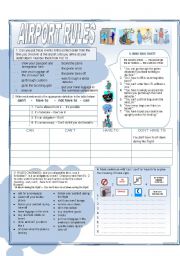
English Exercises Can Or Must

Should Could Would May Might Must Have Done Modal Verbs In English Grammar Lessons Youtube
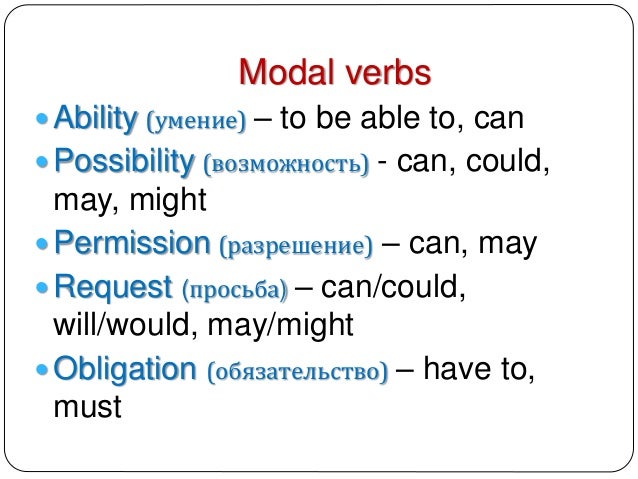
Modals Could May Might Lessons Tes Teach
Q Tbn 3aand9gcrgusyeih4izvzntw2s0xfongpvvmjhz2cuipacwhdpdervkdb0 Usqp Cau
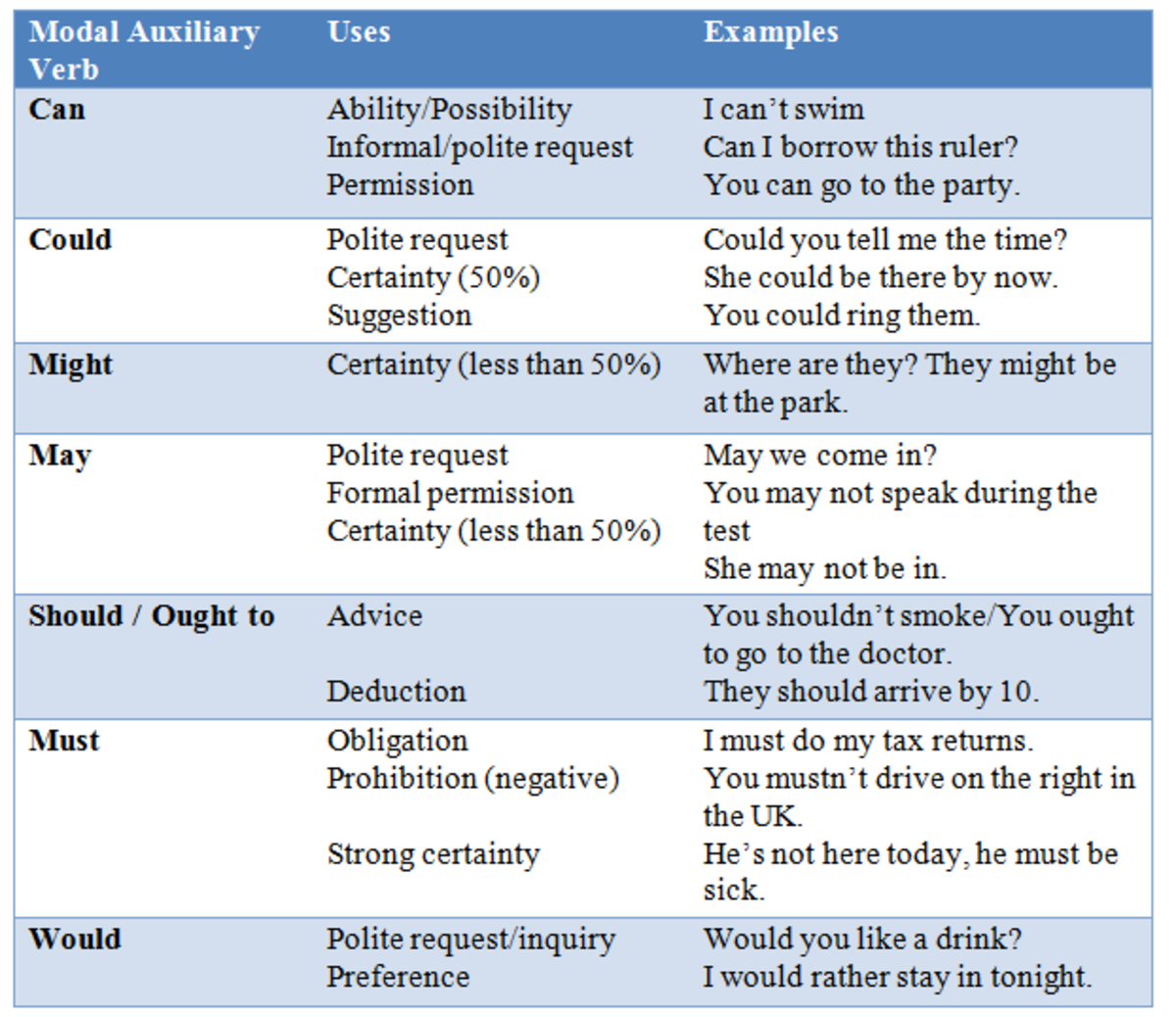
10 Fun Esl Activities To Practice Modal Auxiliary Verbs Owlcation Education
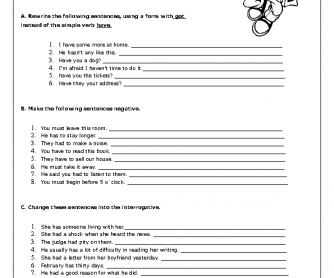
Must Mustn T Vs Have To Don T Have To Worksheet
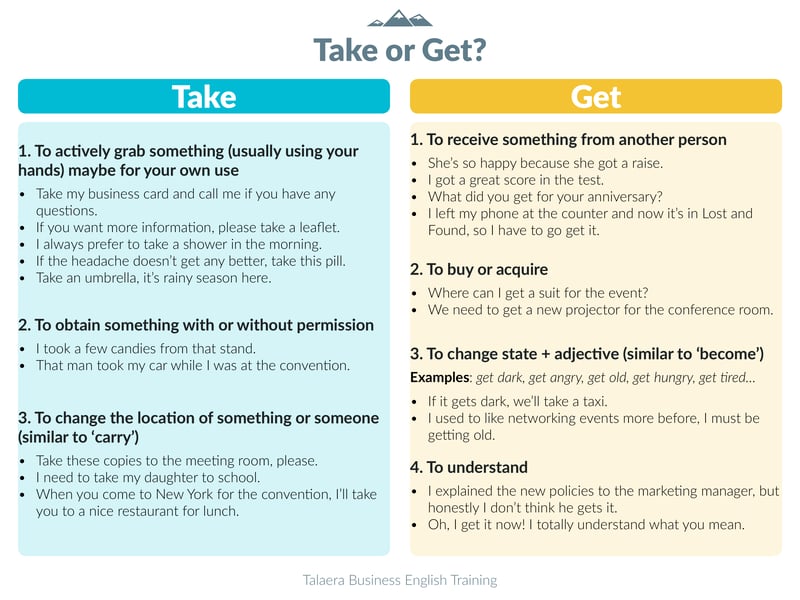
Take Vs Get Includes Examples And Exercises
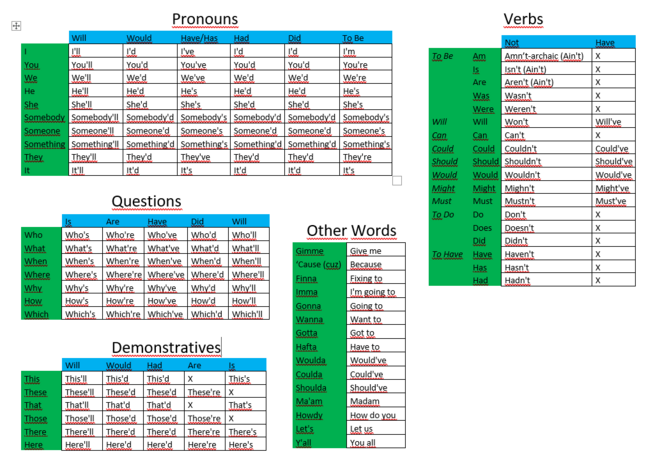
Wikipedia List Of English Contractions Wikipedia

Can X2f Could X2f Be Able To Must X2f Can T X2f May X2f Might X2f Could Deduction Must X2f Ha English Grammar Learn English Woodward English

Mustn T Vs Don T Have To What Is The Difference Youtube

Verbs क र य ए Verbs In English Verbs List Spoken English Guru
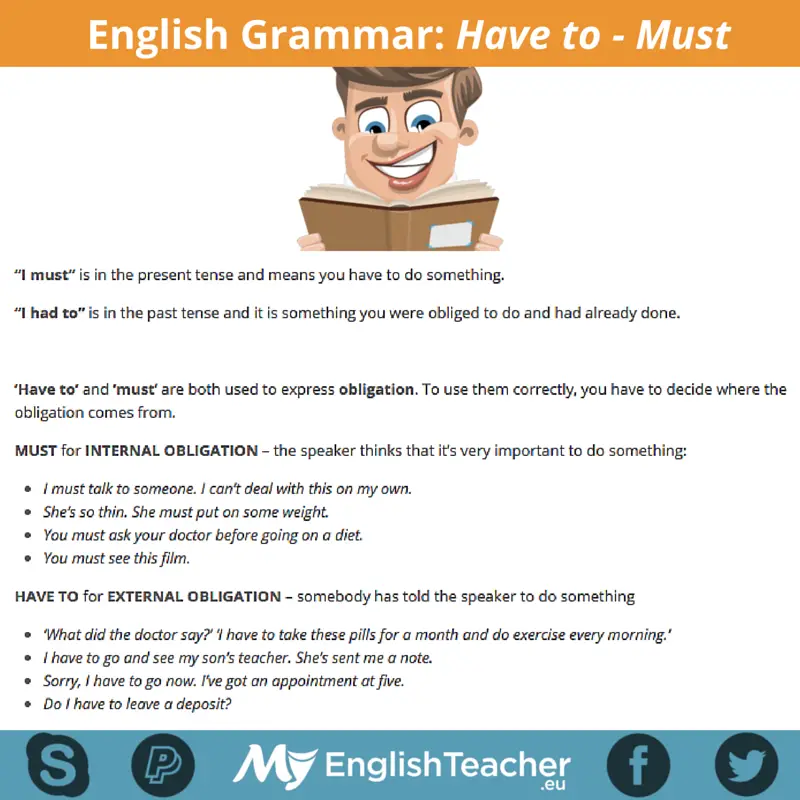
I Had To I Have To Or I Must What Is The Difference Myenglishteacher Eu Blog
Q Tbn 3aand9gcqr0jn4dch Pf Dy6vsu8g6uc1jywaiccff0j8zyc39ikvceub Usqp Cau

Exercises Modal Verbs Must Have To Should Kids Activities
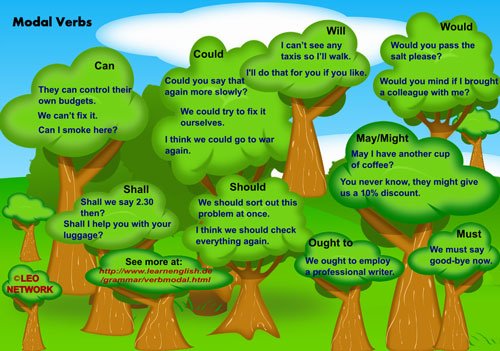
English Grammar Modal Verbs Learn English
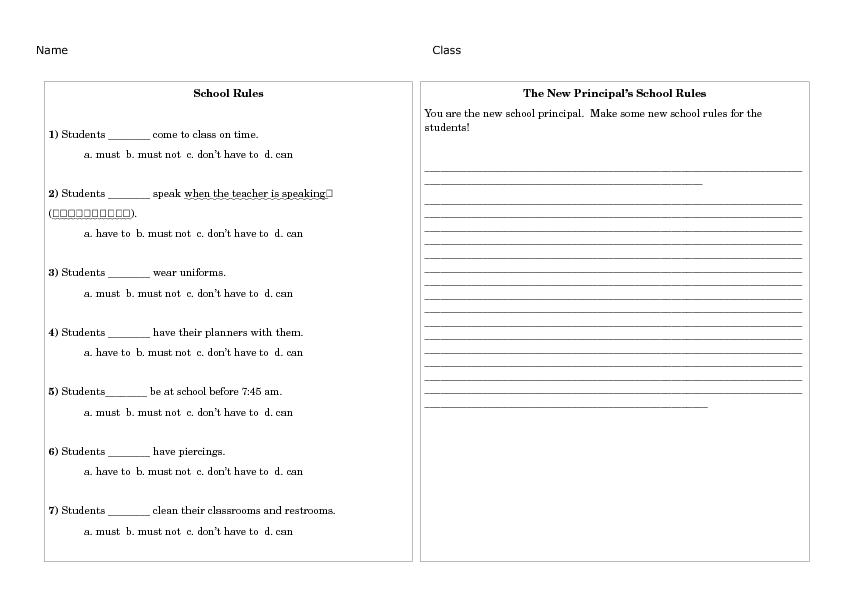
81 Free Must Worksheets
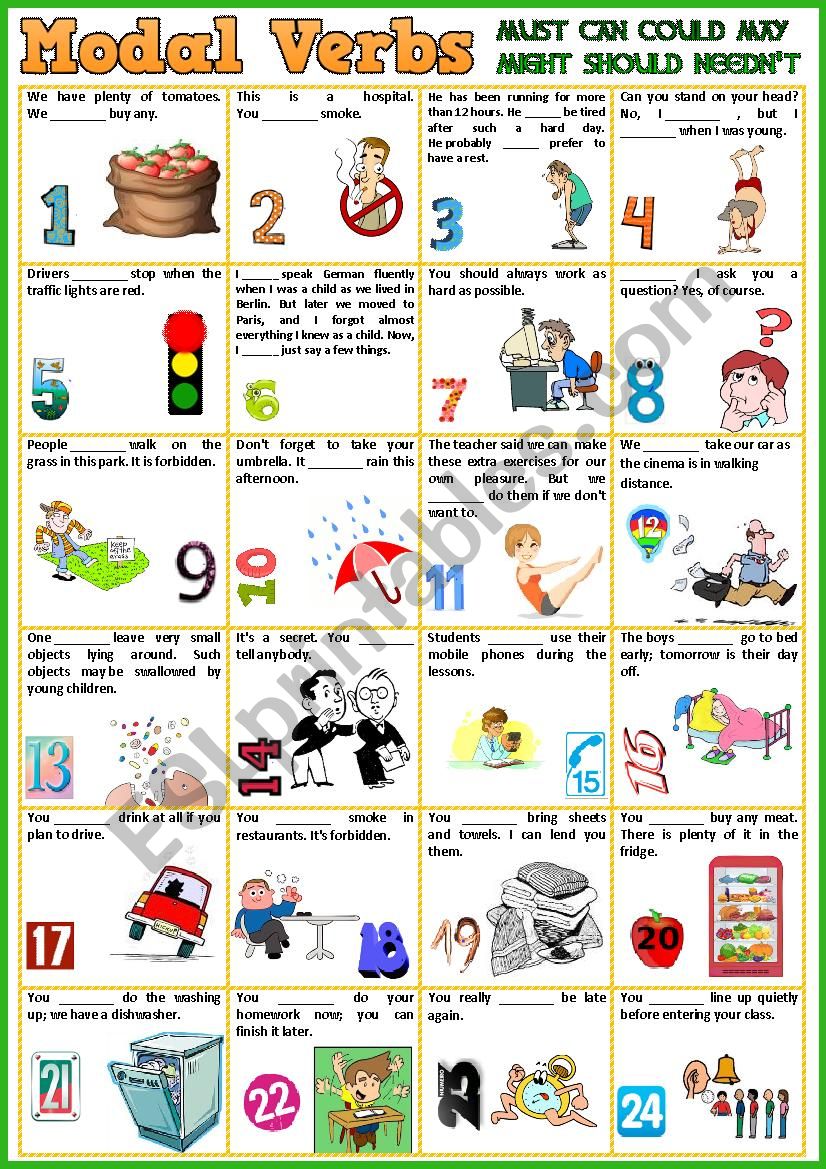
Modals Verbs Must Can Could May Might Should Needn T Key Esl Worksheet By Karagozian

Can Must Should English Esl Worksheets For Distance Learning And Physical Classrooms

Modals Can Could May Might Should Have To Must

Use Of Must May Can Could Have To Need To Has To Ea English

Learning Passive Modals It Can Be Done

Test English Prepare For Your English Exam

Expressing Must Can T Should Needn T Might May Could Have English Learn Site
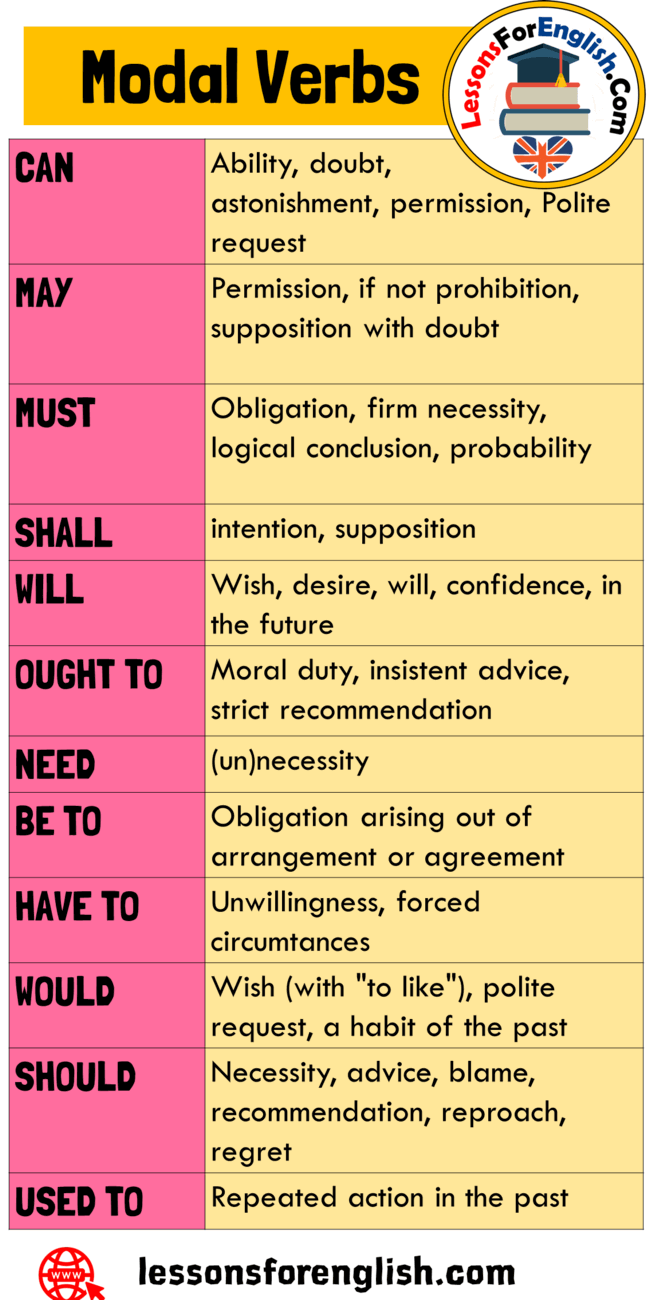
Modal Verbs Can May Shall Need Ought To Have To Would Should Used To Definition And Examples Lessons For English
What Are Modal Verbs Quora

Modals Can Could May Might Should Have To Must

Must Vs Have To Must Not Vs Don T Have To 7 E S L
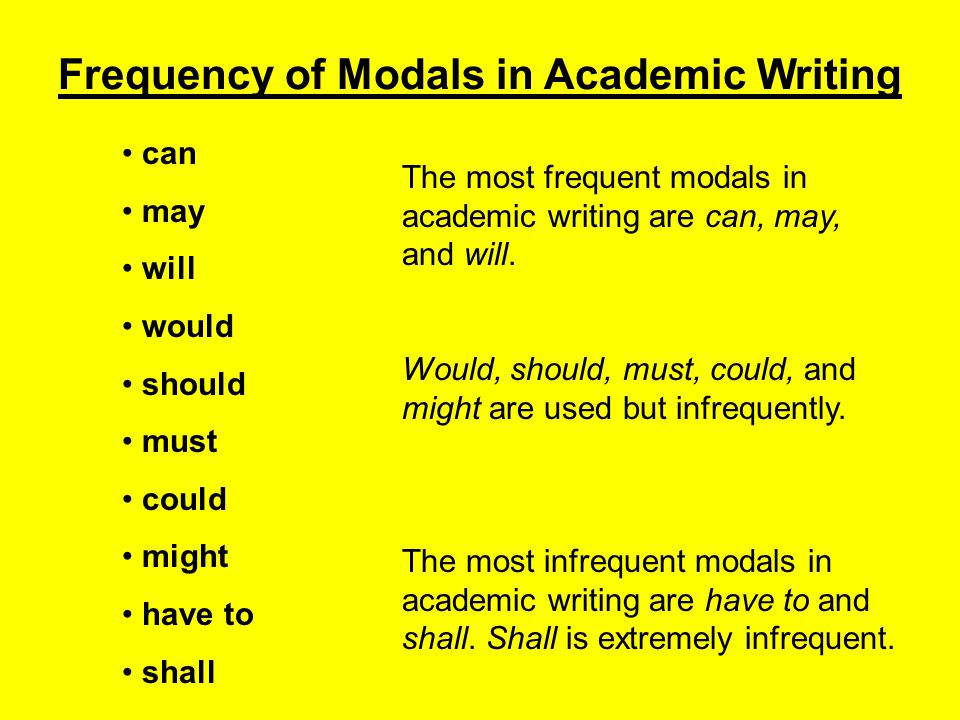
Intermedio 1 Professors In Action

How To Use Can Could May Might Will Would Must Difference Between Should Ought To Meaning Of Owe In Urdu English Grammar Lesson Ea English 2 Ea English

Difference Between Should Ought And Must My Rosetta Stone

English Worksheets Modal Verbs Worksheets Page 3

Modal Verbs Activities Apuntes De Hospitalidad Y Turismo Docsity
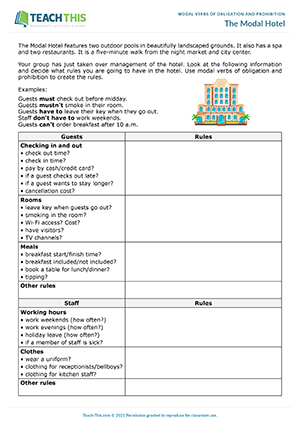
Modal Verbs Obligation Prohibition Esl Activities Worksheets Games

Must Vs Have To What Is The Difference Youtube

Must Mustn T Can Can T Have To Don T Have To English Esl Worksheets For Distance Learning And Physical Classrooms
(79).jpg)
Modals Quiz Proprofs Quiz
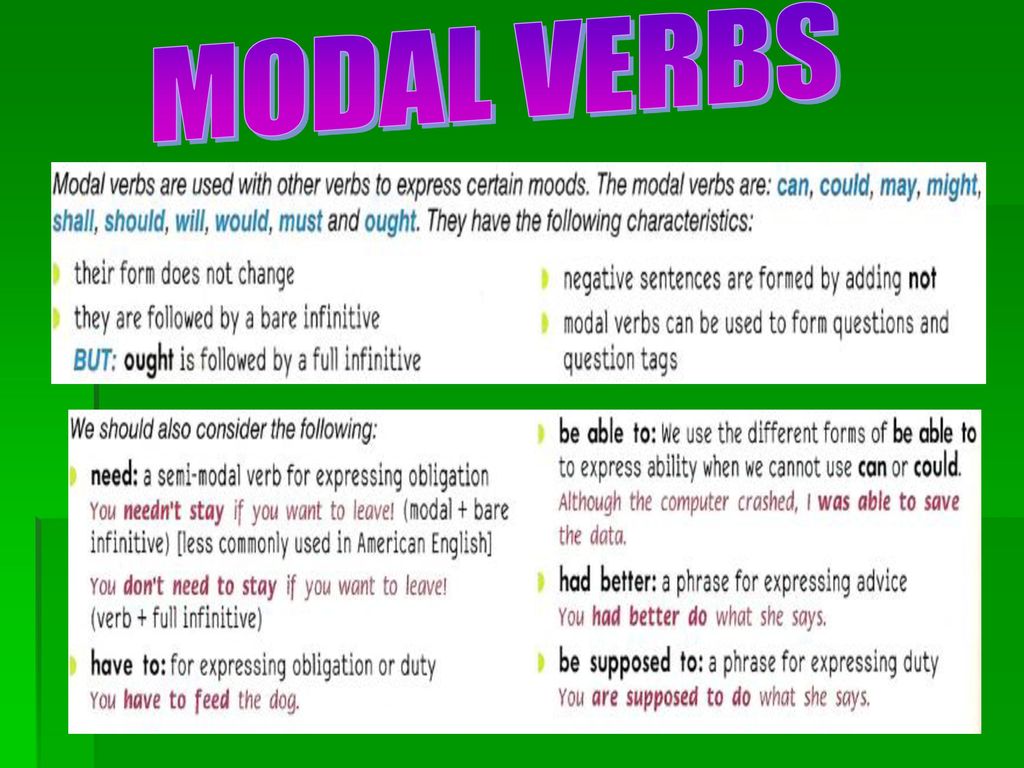
Modal Verbs Modal Verbs Uses Of Must And Its Opposites Ppt Download
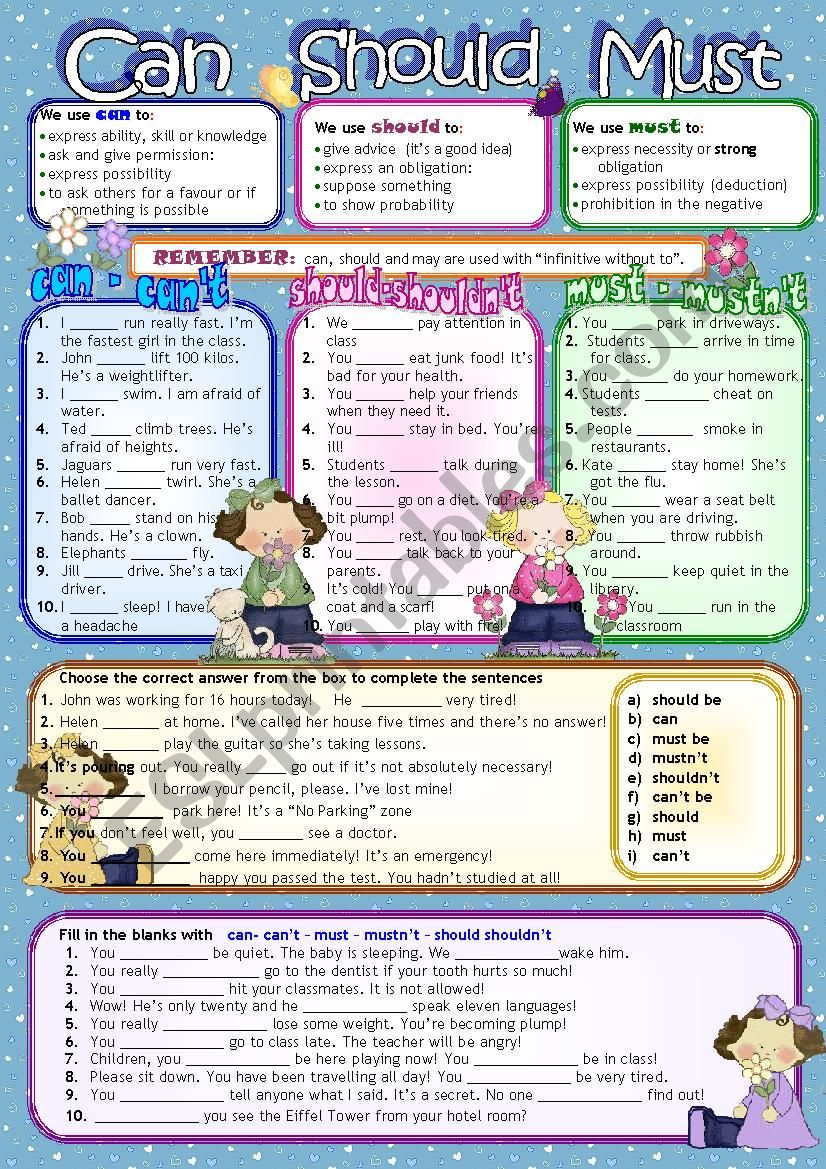
Can Should Must Greyscale Answer Key Included Esl Worksheet By Mariamit

Modal Verbs Can Could May Might Should Ought To Must Have To Ppt Video Online Download
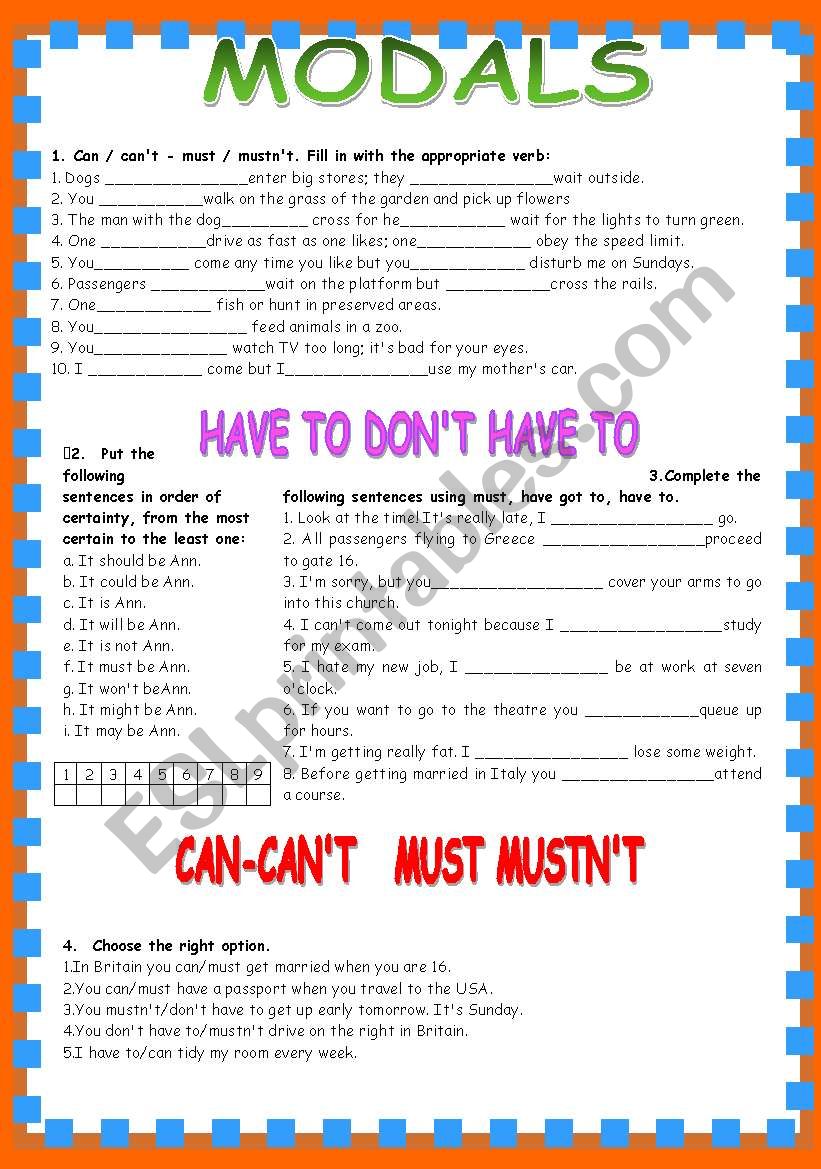
Modals Can Can T Have To Don T Have To Must Mustn T Should Shouldn T Esl Worksheet By Patties

Yes No Questions With Modal Verbs English Study Page

Should Must Could Need To Ought To Those Confusing Modal Verbs Hilary Trick Proofreading

Modal Verbs Online Presentation
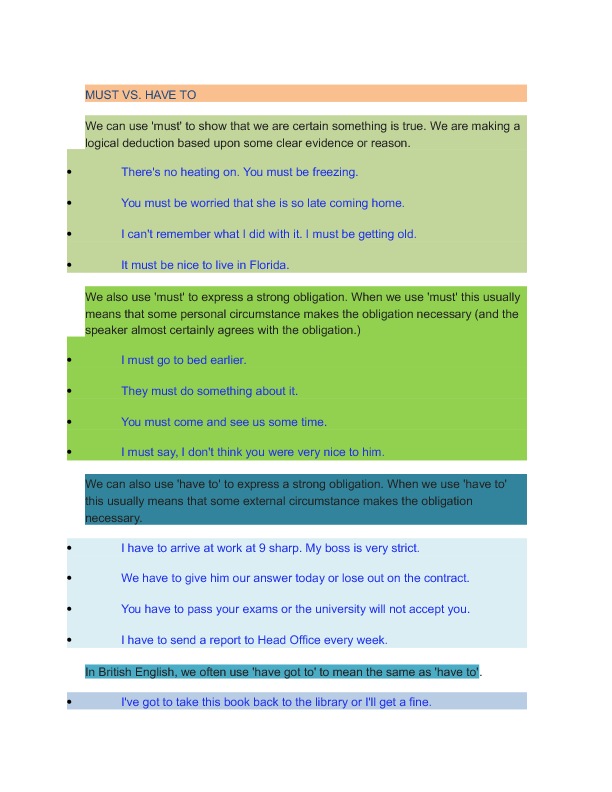
57 Free Have To Worksheets
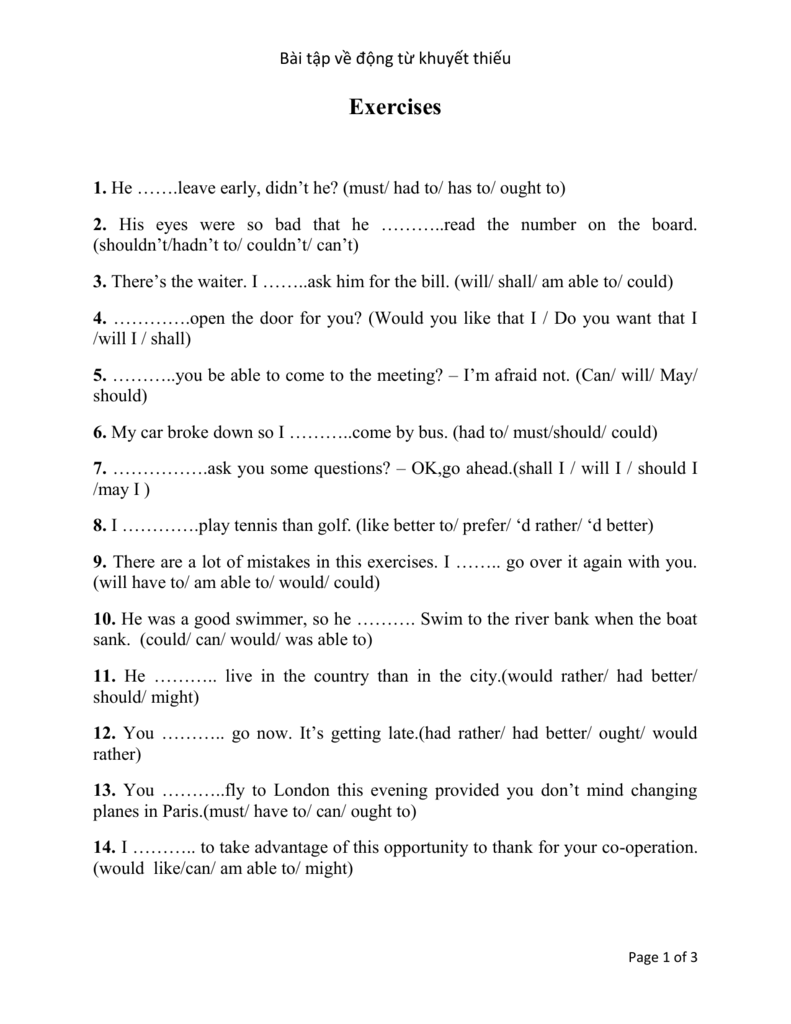
Exercises
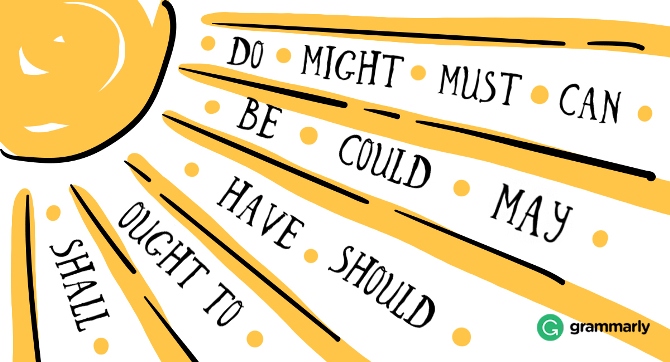
The Rise Of The Helping Verb Grammarly Blog
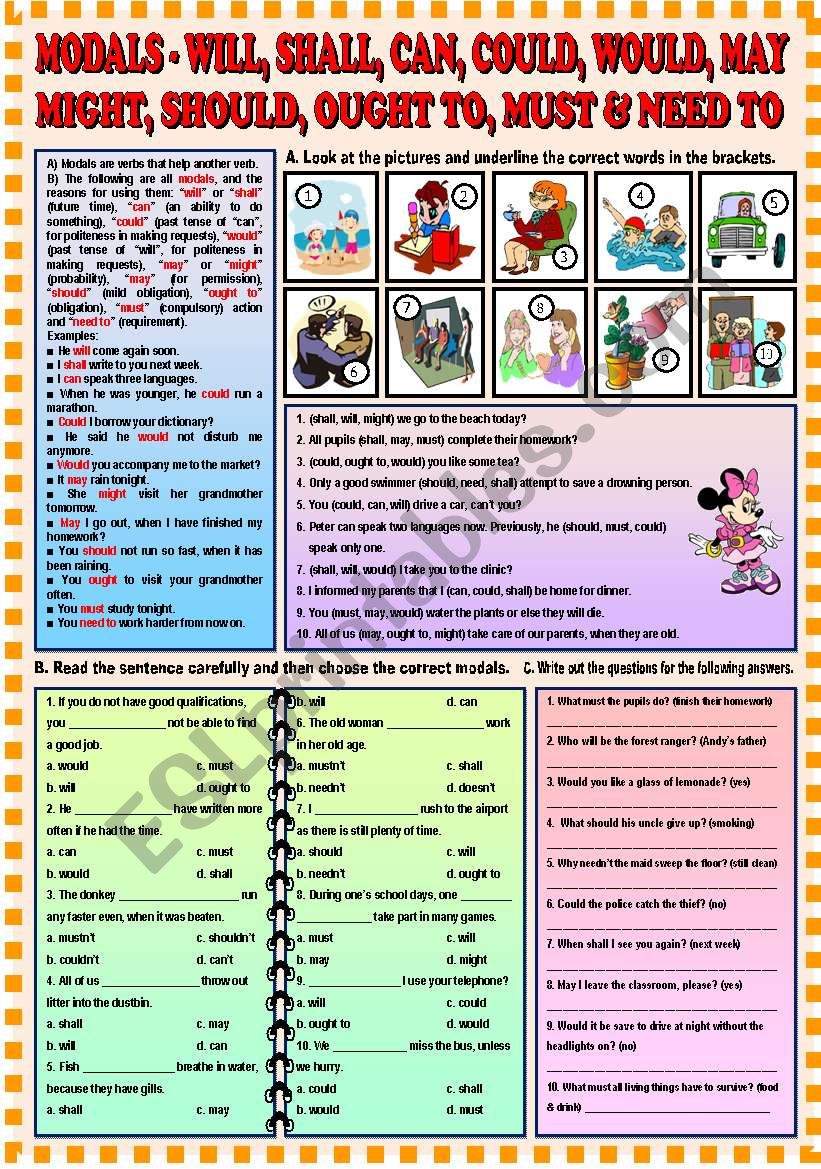
Modals Will Shall Can Could Would May Might Should Ought To Must Need To Key Esl Worksheet By Ayrin

Modal Verbs Ingles
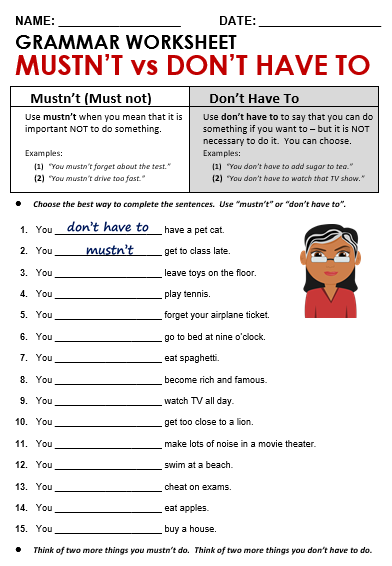
Must Necessity All Things Grammar

Modal Verbs Games And Activities Worksheets Lesson Plans
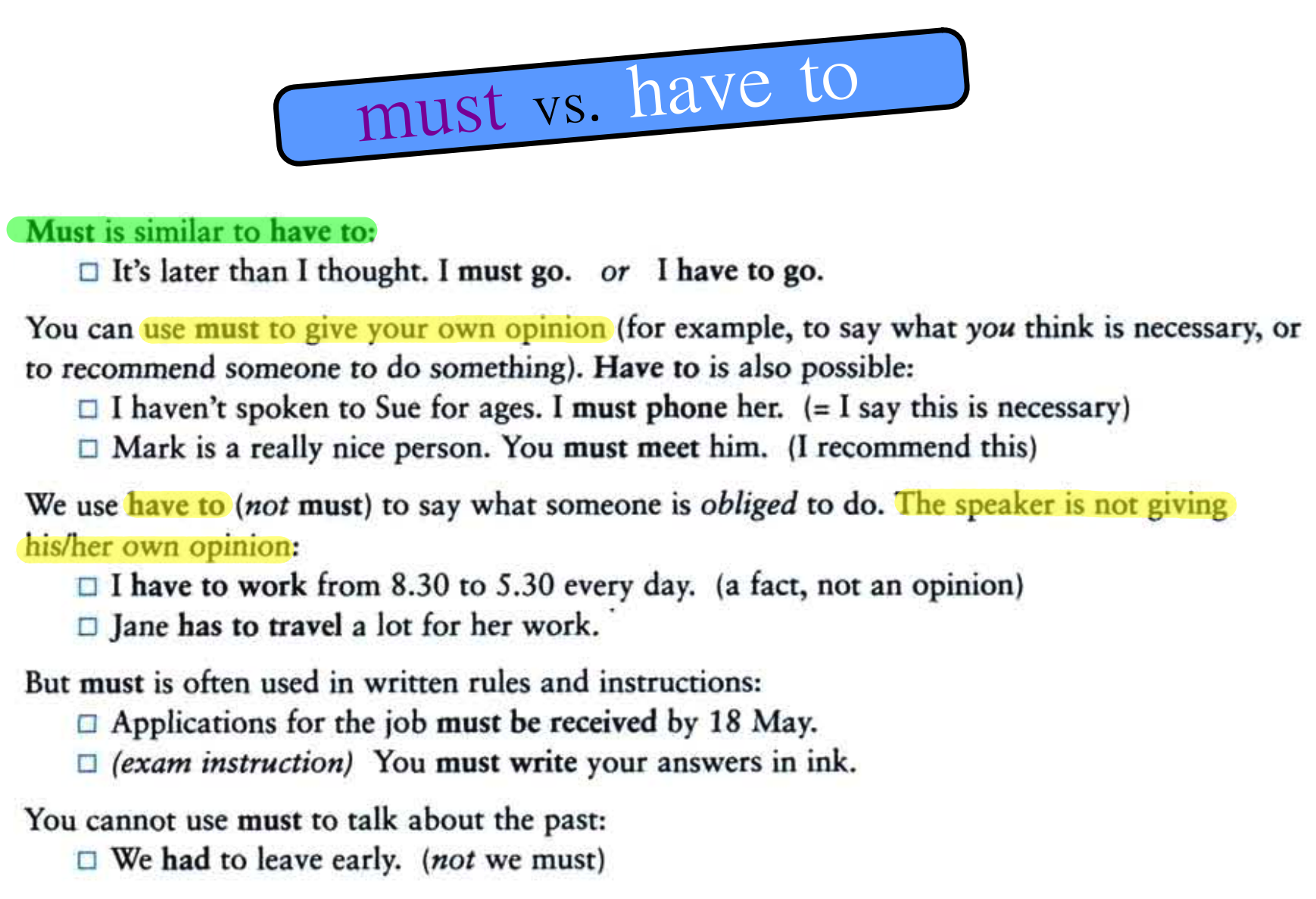
Copy Of Must Vs Have To Lessons Tes Teach
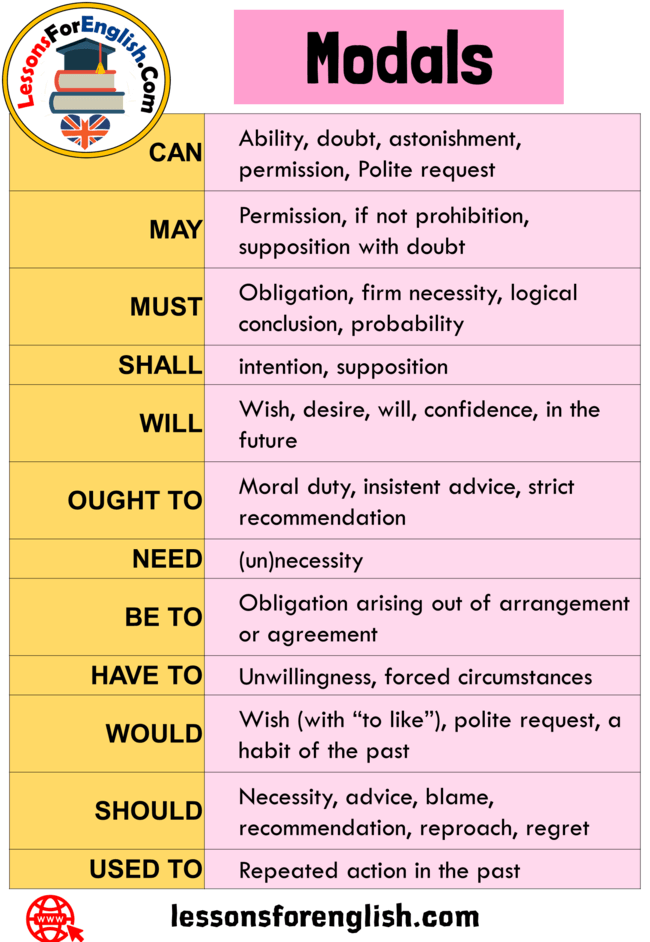
Modals Can May Must Shall Will Ought To Need Be To Have To Would Should Used To Lessons For English

Modals And Modal Perfects Ensenanza Ingles Clase May Might Worksheets With Answers Math May And Might Worksheets With Answers Worksheets Math Experiments For Kids Algebra Equations Year 9 Math Reference Extra Math

Teaching Must And Have To Necessity Modals Off2class
.jpg)
English Grammar Use Of Must Have To Should Trivia Quiz Proprofs Quiz
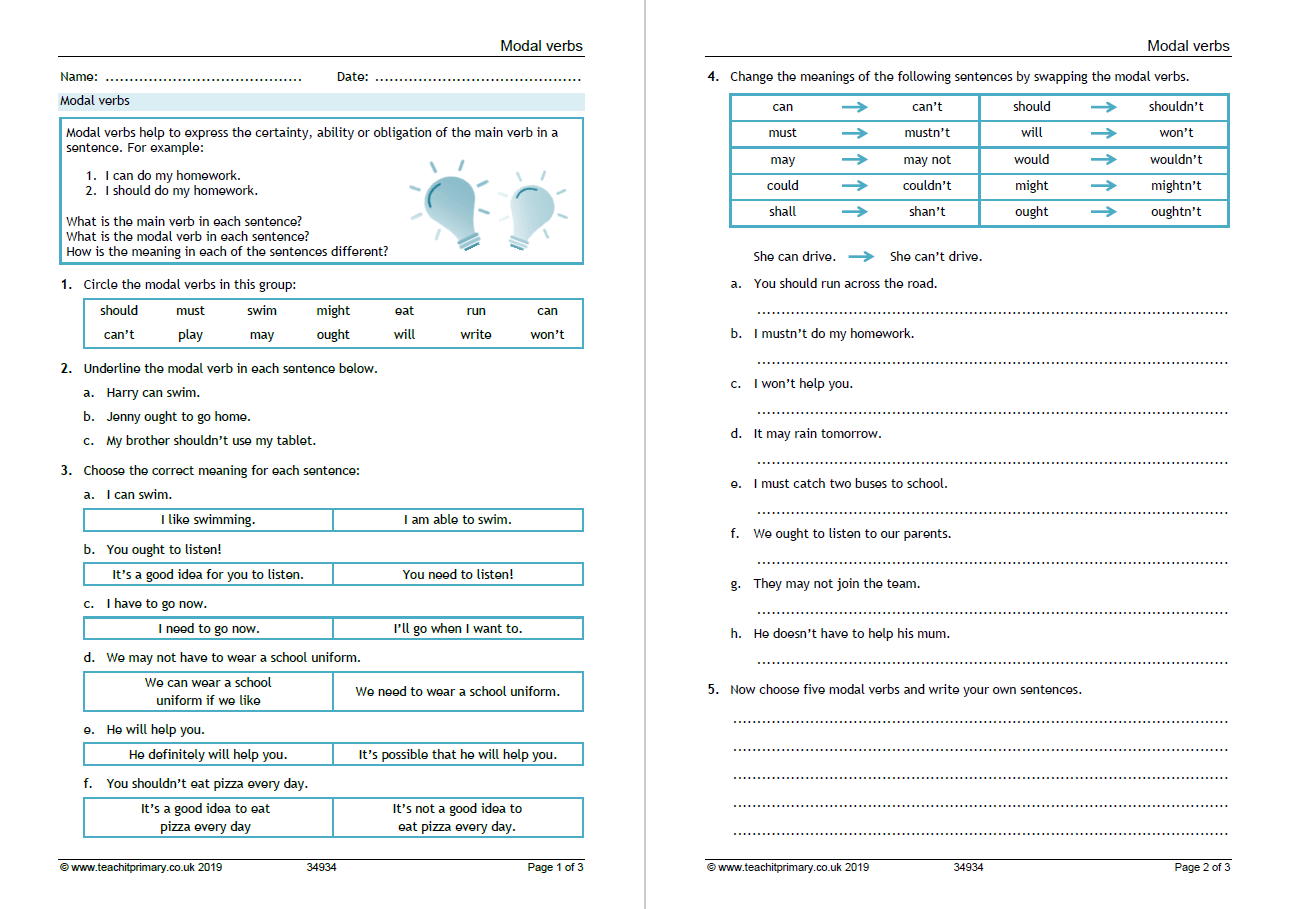
Modal Verbs 8 Of The Best Examples Activities And Resources For Ks2 English Spag

How To Teach May Might Could Must Off2class

Difference Between Have To And Must Difference Between

A Brief Guide To Using The Italian Modal Verbs Volere Dovere Potere Smart Italian Learning

English Grammar Must And Have To Mustn T And Don T Have To Eslbuzz Learning English

Modal Verbs Interactive Worksheets

Must Mustn T Can Have Don T Have To English Esl Worksheets For Distance Learning And Physical Classrooms

Modals Modal Verbs Exercise Pdf

What Do High Modality Words Mean Quora

Modal Verbs Modal Verbs For Bsl Are Can Must Should Want These Are Productive Requirements Pdf Free Download

Cpi Tino Grandio Bilingual Sections Modal Verbs For Eso 3

How To Teach May Might Could Must Off2class

Frequently Asked Questions Faq Global
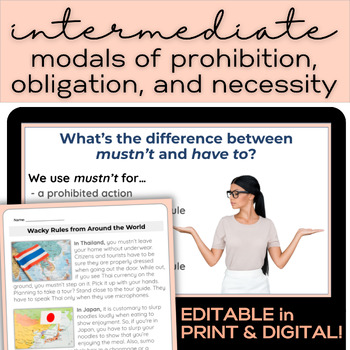
Must Mustn T Worksheets Teaching Resources Teachers Pay Teachers
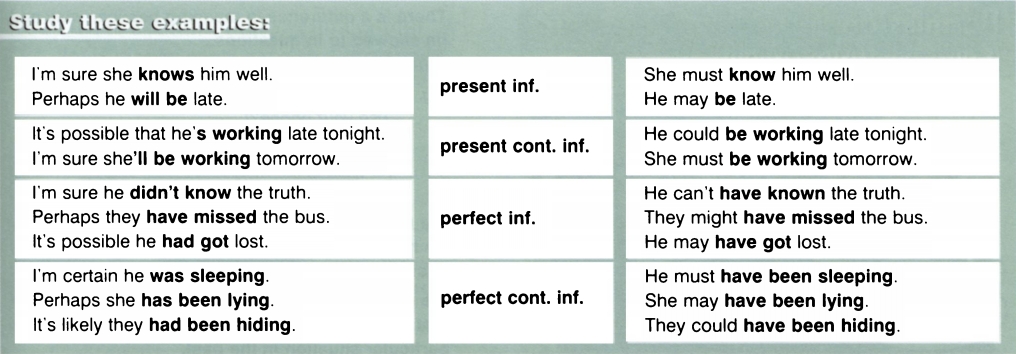
General Rules Modal Verbs

Modals Can Could May Might Should Have To Must

Modal Verbs Prezentaciya Onlajn

Must Or Have To Interactive Worksheet

Modal Verbs Can Can T Must Mustn T Have To Don T Have To Ppt Download

How To Set Up A Must Do May Do System For Managing Literacy Centers Learning At The Primary Pond

Free Weekly Must Do List Morgan Elliott Team Be Bold

Understanding Modals Of Necessity Must Have Got To Have To Infographic Grammar Newsletter English Grammar Newsletter

Modal Verbs Can May Must English Esl Worksheets For Distance And Grammar Drills Free Can And May Grammar Worksheets Worksheets Equation To Find Work Free Printable Counting Coins Worksheets Ratio And Proportion
Q Tbn 3aand9gctznsybspyfxmkyd8r N8mi2lbq6hzhyhrnbzlsuzndvk6fsmu4 Usqp Cau
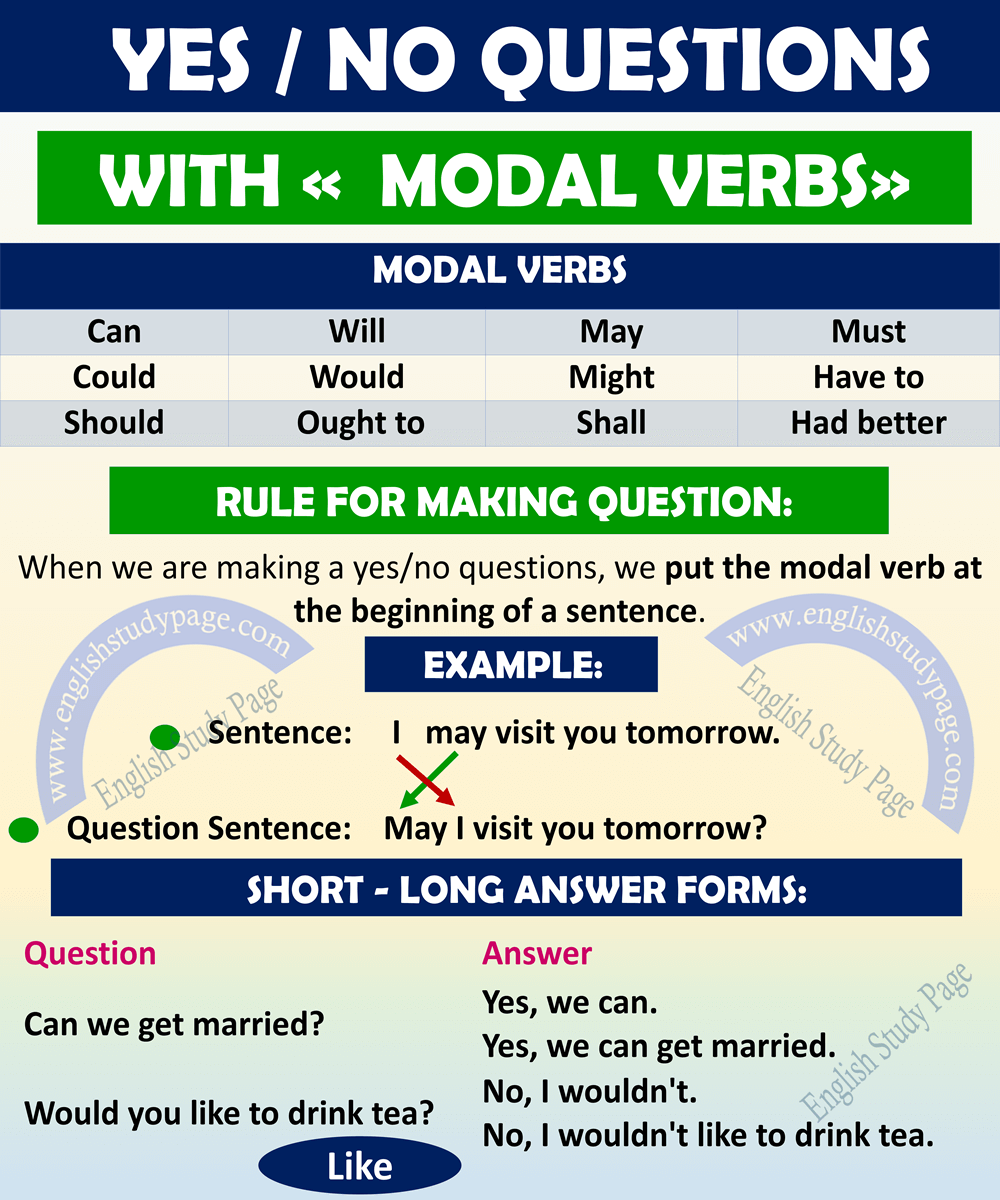
Yes No Questions With Modal Verbs English Study Page

Test English Prepare For Your English Exam
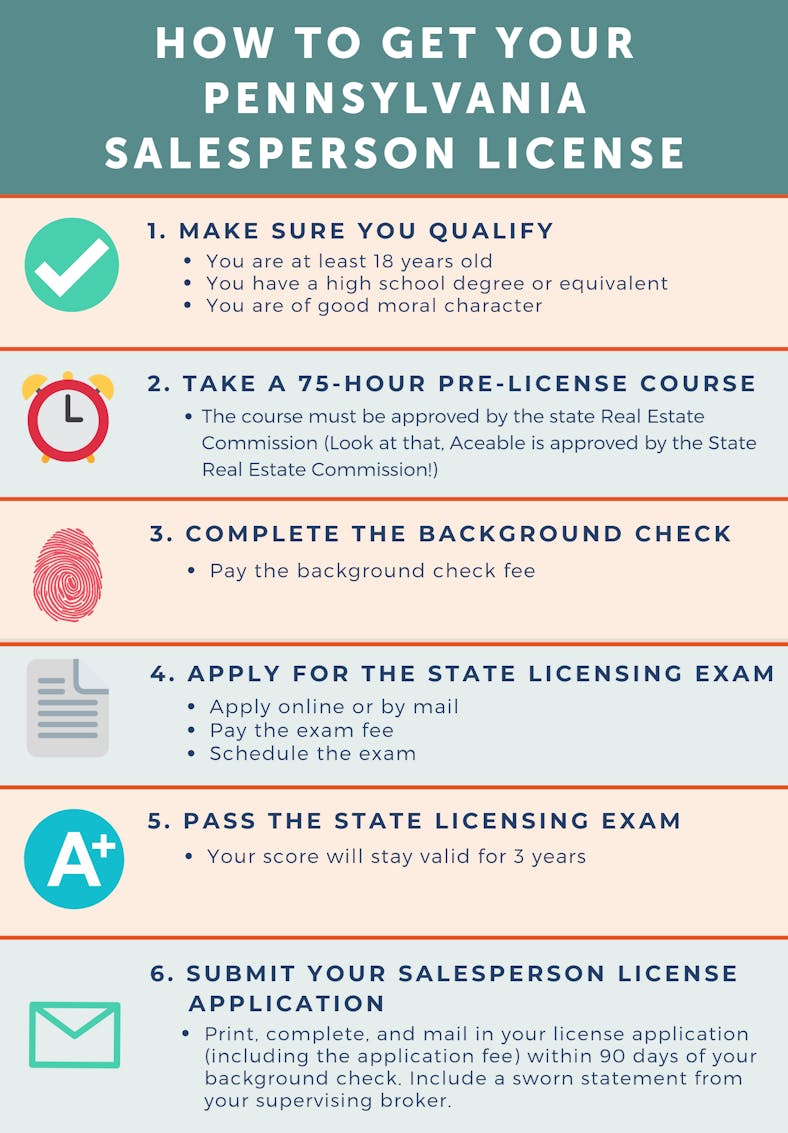
How Do I Become A Real Estate Agent In Pennsylvania Aceableagent

Can X2f Could X2f Be Able To Must X2f Can T X2f May X2f Might X2f Could Deduction Must X2f Have English Grammar English Verbs Learn English

Must Mustn T Can Have Don T Have To English Esl Worksheets For Distance Learning And Physical Classrooms

Modal Verbs Must Have To Can Should Con Ejemplos Y Explicado En Espanol Aprendeingles Youtube

Modals Can Should Ought To Must Have To Can Is One Of The Most Commonly Used Modal Verbs In English It Can Be Used To Express Ability Or Opportunity Ppt Download

How To Make Sense Of The Ppp Loan Program For Vc Backed Startups By Mark Suster Both Sides Of The Table

81 Free Must Worksheets

Modal Verbs Must Have To Can Could Should Mustn T Don T Have To Can T Couldn T Shouldn T Ppt Download

English Worksheets Must Mustn T Worksheets Page 1

How To Use Must Modal Verbs Video Oxford Online English

Modal Verbs Must Mustn T Have To Don T Have To Can Be Able To Esl Worksheet By Esther1976

How To Teach May Might Could Must Off2class

Modal Verbs Part 3purland Traininglearn English Online For Free



